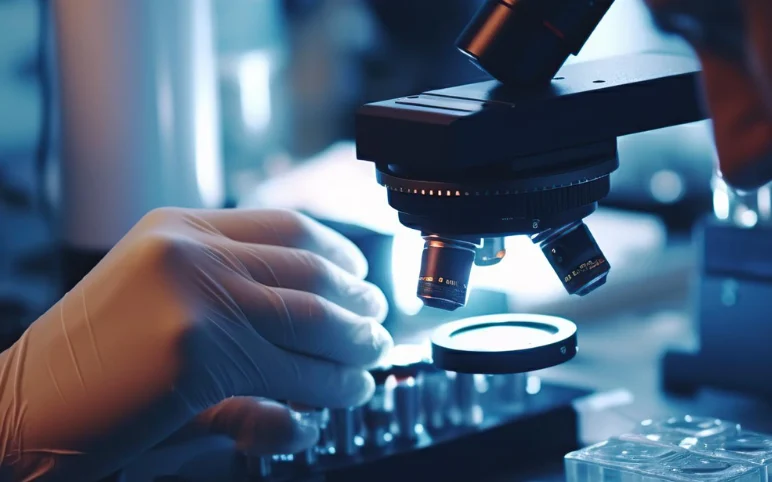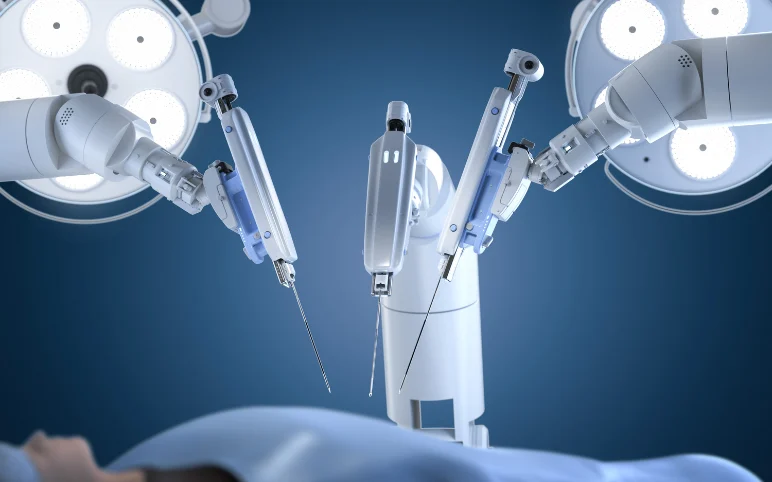CereVasc Announces FDA Approval of Second IDE Study of the eShunt® System
On August 09, 2022, CereVasc, Inc., a privately held, clinical-stage medical device company developing novel, minimally invasive treatments for neurological diseases, announced that the U.S. Food and Drug Administration (FDA) has approved an investigational device exemption (IDE) application to initiate a pilot trial of the eShunt® System in patients who develop communicating hydrocephalus post aneurysmal subarachnoid hemorrhage (paSAH).
The eShunt System is designed to provide communicating hydrocephalus (CH) patients with the first minimally invasive treatment and an upgrade to the current standard of care. The endovascularly implantable cerebral spinal fluid (CSF) shunt and delivery components of the patented eShunt System are intended to cure CH without invasive surgery.
“We are excited to receive IDE approval from FDA to conduct a second pilot study in the US of the eShunt System in patients who develop hydrocephalus following subarachnoid hemorrhage. Enrolling in parallel with our first IDE study in patients with Normal Pressure Hydrocephalus (NPH), this study will allow us to further examine the safety and efficacy of the eShunt System in a second etiology of hydrocephalus, both of which present a number of management challenges to physicians,” said Dan Levangie, Chairman and CEO of CereVasc.
“Reports in the literature document that chronic hydrocephalus occurs in 9% to 48% of patients with paSAH. We believe we can have a beneficial impact in how these patients are treated by offering a minimally invasive alternative to current treatments,” continued Levangie.
As per DelveInsight’s “Neurological Diagnostic and Monitoring Equipment Market” report, the global neurological diagnostic and monitoring equipment market was valued at USD 11.81 billion in 2021, growing at a CAGR of 6.66% during the forecast period from 2022 to 2027, and will reach USD 17.33 billion by 2027. The rise in demand for neurological diagnostic and monitoring equipment is primarily motivated by the increasing prevalence of neurological disorders along with the rising aging population, growing incidence of traumatic brain injuries, technological advancement in the product portfolio, the rising government initiatives to raise awareness among patient regarding neurological disorders and their early diagnosis for proper management, among others.
Nanopath Secures $10 Million in Series A Funding to Develop and Commercialize Point-of-Care Diagnostics for Women’s Health
On August 09, 2022, Nanopath Inc., a molecular diagnostics company enabling high-quality molecular testing in minutes, announced that it has closed $10 million in Series A funding, co-led by Norwest Venture Partners and the Medtech Convergence Fund, an SV Health Investors venture fund, with participation from Gingerbread Capital and Green D Ventures. The funding will be used for developing and marketing Nanopath’s biosensing technology, which hopes to revolutionize the way pelvic and gynecologic infections in women are identified.
“Nanopath’s mission is deeply rooted in improving women’s health and even more broadly, health equity for all. We envision Nanopath’s technology as the go-to platform for routine women’s health screening, allowing for clinically actionable diagnosis within a single office visit,” said Amogha Tadimety, Ph.D., co-founder, and CEO of Nanopath. “With this funding, we’re looking to build our technical team and initiate commercial and clinical partnerships to bring our technology platform to market”.
According to DelveInsight’s “Point of Care Diagnostics Market” report, the global point of care diagnostics market was valued at USD 1.85 billion in 2021, growing at a CAGR of 7.99% during the forecast period from 2022 to 2027 to reach USD 2.93 billion by 2027. The demand for point-of-care diagnostics is primarily being boosted by the rising number of patients suffering from various infectious diseases, rising prevalence of diabetes, increasing frequency of both chronic and acute diseases, and increasing demand of point of care kits in the management of COVID-19 infection and the increasing technological advancements associated with the Point of Care Diagnostic devices will help in driving the overall market growth of point of care diagnostics during the forecast period from 2022-2027.
Movano Ring Exceeds Accuracy Targets for SpO2 and Heart Rate Monitoring in Initial Hypoxia Study; Company Eyes FDA Submission
On August 09, 2022, Movano Inc., Founded in 2018, Movano Inc. is developing a suite of purpose-driven healthcare solutions to bring medical-grade, high-quality data to the forefront of consumer health devices, reported the accomplishment of a study to evaluate the reliability of the Movano Ring’s blood oxygen saturation (SpO2) and heart rate data, conducted in collaboration with the University of California, San Francisco (UCSF). This successful study is a positive step toward the company’s mission to provide medically-validated data to consumers and healthcare professionals, with results that exceeded the requirements of the industry standard used by the FDA for evaluating SpO2 devices.
Seven volunteers of varied genders and ethnicities participated in the trial, which followed the identical protocol that the FDA required for the application. Each participant’s oxygen levels were brought down to as little as 70% and then brought back up to 100% while wearing a prototype Movano Ring and reference devices in a controlled environment to test the device’s accuracy during mild, moderate, and severe hypoxia. The prototype also monitored heart rate throughout this time, and since subjects were depriving themselves of oxygen, their pulse rates fluctuated between 60 and 120 beats per minute.
After comparing the overall accuracy of the Ring’s data with that of the reference devices, the Movano Ring resulted in a 2% margin of error, well below the FDA’s 4% requirement for SpO2. Additionally, the Ring also estimated heart rate with accuracy commensurate with the FDA’s standards. As Movano eyes its first FDA submission, validating the device’s ability to measure blood oxygen levels, heart rate, and other vitals is a top priority for the company. Based on the positive results from this study, Movano plans to conduct a larger pivotal study for the FDA submission later this year.
“The FDA has a high threshold for accuracy and requires an extensive investment by any company to prepare to meet these standards. This hypoxia study is a promising display of the quality metrics our ring can deliver,” said John Mastrototaro, CEO of Movano. “While this outcome is an exciting step toward the FDA submission, what it really means for consumers and healthcare providers is we’re one step closer to being able to trust and utilize the ring data in a meaningful way.”
According to DelveInsight’s “Cardiac Monitoring Devices Market” report, the global cardiac monitoring devices market will grow at a CAGR of 5.4% during the forecast period from 2022 to 2027. The demand for cardiac monitoring devices is primarily being boosted by the rising prevalence of cardiovascular diseases, technological advancement in product development, increasing geriatric population, sedentary lifestyle, and increasing awareness programs regarding cardiovascular diseases.
On August 12, 2022, Thermo Fisher Scientific’s, is the world leader in serving science, received premarket approval from U.S. Food and Drug Administration (FDA) for its Oncomine Dx Target Test as a companion diagnostic (CDx) to identify patients whose tumors have a HER2 (ERBB2) activating mutations (SNVs & Exon 20 Insertion) in non-small cell lung cancer (NSCLC) who may be candidates for ENHERTU® (fam-trastuzumab deruxtecan-nxki). ENHERTU is a specifically engineered HER2-directed antibody-drug conjugate (ADC) being jointly developed and commercialized by Daiichi Sankyo and AstraZeneca.
“With care decisions increasingly made based on a tumor’s molecular profile, the FDA’s latest approval of ENHERTU in HER2 mutant metastatic non-small cell lung cancer and the additional approval of the Oncomine Dx Target Test as a companion diagnostic marks a significant step forward for precision oncology,” said Garret Hampton, president, clinical next-generation sequencing and oncology at Thermo Fisher Scientific. “To ensure patients and clinicians can readily access testing to inform care decisions, we are committed to making NGS accessible and easy to use so patients everywhere will be able to benefit from precision therapies, when indicated.”
According to DelveInsight’s “Companion Diagnostics Market” report, the global companion diagnostics market was valued at USD 5.91 billion in 2021, growing at a CAGR of 12.32% during the forecast period from 2022 to 2027, to reach USD 11.89 billion by 2027. The increase in the market for companion diagnostics is predominantly owing to an exponential rise in cancer cases across the globe. Additionally, the rise in awareness regarding precision medicine among the patient population, as well as the growing focus of the manufacturers concerning the development of precision medicine, has bolstered the demand for companion diagnostics. Furthermore, an increase in research and development for developing companion diagnostics for non-cancer disorders, and growing approvals and launches of various companion diagnostic products in the market, among others, are some of the key factors anticipated to augment the global market for companion diagnostics during the forecast period (2022-2027).
BD, Accelerate Diagnostics Announce Global Commercial Collaboration
On August 15, 2022, BD, a leading global medical technology company, and Accelerate Diagnostics, Inc, an innovator of rapid in-vitro diagnostics in microbiology, announced the worldwide commercial collaboration agreement between them where BD will offer Accelerate’s rapid testing solution for antibiotic resistance and susceptibility offering results in hours, versus one to two days with some traditional laboratory methods.
Under the agreement, BD will market and sell the Accelerate Pheno® system and Accelerate Arc™ module and related test kits through its global sales network in the territories where products have received regulatory approval or registered. These solutions complement BD’s existing Clinical Microbiology portfolio and advance the shared goal of both companies to address the global threat of antimicrobial resistance.
The first test approved by the U.S. Food and Drug Administration that may provide both fast identification and phenotypic antibiotic susceptibility results in hours directly from positive blood cultures is the Accelerate PhenoTest® BC kit. Recent studies conducted outside of the laboratory have shown that this solution provides results one to two days faster than conventional laboratory methods, which can involve culturing samples for 18 to 24 hours and then performing a susceptibility test, the results of which can take eight to 24 hours. Because of this, doctors may choose the best antibiotics and administer them to patients days early. The benefits of reducing the time to optimal therapy are extensively documented in peer-reviewed research for patient outcomes and hospital operations.
By automating the direct MALDI ID workflow, the Accelerate ArcTM module is a straightforward load-and-go system that does away with the need for a specialist for MALDI ID as well as for extensive hands-on time. For positive blood cultures, it is currently registered with the US, CE-IVDR, and UKCA.
“When a patient is very sick, every minute matters,” said Brooke Story, president of Integrated Diagnostic Solutions for BD. “Rapid testing can quickly determine if an antibiotic should be used for treatment, and if so, which one. Through our collaboration with Accelerate Diagnostics, we can help clinicians more quickly, efficiently and effectively treat patients, which may lead to a reduction in health care costs and help slow the spread of antimicrobial resistance.”
According to DelveInsight’s “Rapid Diagnostic Kits Market” report, the global rapid diagnostic kits market was valued at USD 14.12 billion in 2021, growing at a CAGR of 3.55% during the forecast period from 2022 to 2027, to reach USD 17.38 billion by 2027. The stellar growth observed in the rapid diagnostic kits market is primarily owing to the rising prevalence of diabetes globally, the increasing prevalence of COVID-19, the increasing incidence of Human Immunodeficiency Virus (HIV) infection, the increased regulatory approval of rapid diagnostics kits in the market, and the increase in demand of point-of-care immunodiagnostic tests are some of the factors propelling the market for rapid diagnostic kits during the forecast period from 2022 to 2027.
Avails Medical Announces the Commencement of U.S. Pivotal Clinical Trials for eQUANT™
On August 15, 2022, Avails Medical, a pioneer in rapid, automated, and fully electrical antibiotic susceptibility testing (eAST™), announced the commencement of U.S. pivotal clinical trials for its eQUANT system, which will be used to support a submission for FDA clearance.
The eQUANT system from Avails can produce a standardized inoculum (0.5 McFarland equivalent) from positive blood culture in as little as 40 minutes. This inoculum may be utilized with disc diffusion and classic automated AST systems, speeding up AST turnaround times by as much as one day. Avails revealed extremely accurate AST results in a recent clinical pilot trial while using the eQUANT McFarland output. AST data from eQUANT were accessible at least 22 hours quicker than with traditional approaches.
“eQUANT addresses the critical need for faster bloodstream infection diagnostics to enable physicians to optimize antibiotic therapy early, either by broadening it to overcome resistance to empiric agents used or to narrow it to minimize unnecessary use of broad-spectrum agents. Also facing a general staff shortage across microbiology laboratories, automating and accelerating the preparation of standardized organism suspensions for antimicrobial susceptibility testing of positive blood cultures using the eQUANT system will result in improved workflow and faster turn-around times”, said Michael R. Jacobs, MD, PhD, Professor Emeritus, Department of Pathology, Case Western Reserve University and Director Emeritus, Clinical Microbiology, University Hospitals Cleveland Medical Center.
“Our modular, cost-efficient eQUANT system features a small footprint and straight-forward user interface, making it well suited for widespread adoption from clinical laboratories to community hospitals. The technology is designed to fit seamlessly into the existing workflow of laboratories of all sizes and enable timely and accurate AST results”, said Dr. Oren Knopfmacher, CEO of Avails Medical.According to DelveInsight’s “Sepsis Diagnostics Market” report, the global sepsis diagnostics market was valued at USD 644.48 million in 2021, growing at a CAGR of 9.60% during the forecast period from 2022 to 2027 to reach USD 1114.82 million by 2027. The sepsis diagnostics market is witnessing positive growth owing to various factors such as the increasing prevalence of the COVID-19 pandemic, a rise in the geriatric population, the increasing prevalence of bacterial infections such as tuberculosis, and the surge in the regulatory approvals for the technologically advanced sepsis diagnostics products. Therefore, the market for sepsis diagnostics is estimated to grow at a significant CAGR during the forecast period from 2022 to 2027.



